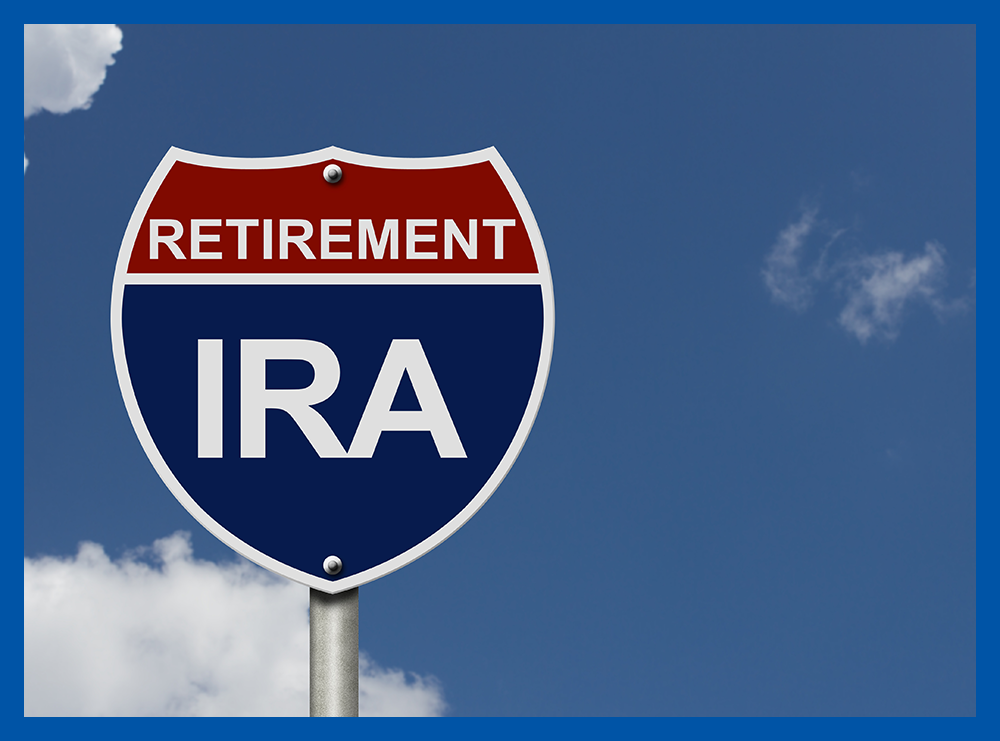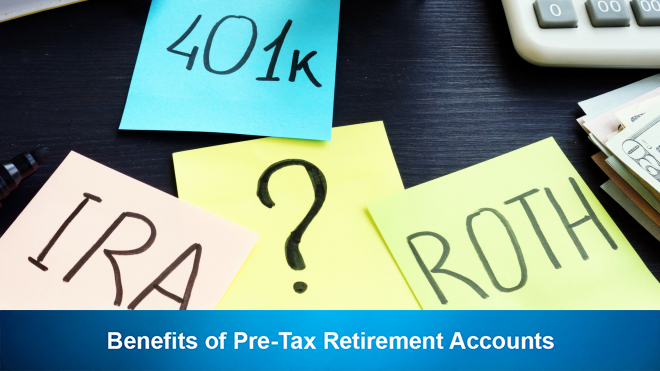When it comes to saving for retirement, you have many different retirement accounts to choose from. By understanding how tax-efficient strategies can affect your retirement, you have a greater chance of keeping more of your savings for yourself.
When you retire, you leave behind many things – the hectic work life, the commuting, and sometimes even your old home – but one thing you keep is a tax bill. In fact, income taxes can be your single largest expense in retirement – therefore managing these taxes is crucial to your retirement nest egg.
Retirement portfolios include investments made with either pre-tax or after-tax contributions, or both. Pre-tax contributions can help reduce income taxes in your pre-retirement years while after-tax contributions can help reduce income tax burden during retirement.
You can also save for retirement outside of a retirement plan, such as in an investment account. Generally, your retirement income comes from both retirement plans and after-tax investment accounts.


Do the terms ‘pre-tax’ and ‘after-tax’ savings confuse you? You’re not alone. It’s important to understand the difference between pre- and post-tax benefits because choosing one or the other could be a disadvantage to you, depending on the type of benefit.
Pre-tax deductions are the deductions applied to employees paycheck before taxes are assessed. These deductions are applied to your gross paycheck and reduce the amount of money that can be taxed locally, state-level, and federally. Pre-tax deductions are beneficial to employees because they lower a person’s tax liability ahead of time and they reduce the amount of money owed to Medicare and Social Security each pay period.
Post-tax contributions for benefits do not reduce overall tax burden but can provide future relief when it’s time to utilize the benefits. They may not provide tax breaks on the front end, but a post-tax deduction can result in savings in the future.


Investments made with pre-tax contributions, such as 401(k)s and traditional IRAs are also described as “tax-deferred.” They allow you to postpone paying taxes on the amount you contribute and the earnings that are generated as long as they remain in the account. When you withdraw funds at retirement, you’ll pay taxes on them.
- The account value may grow faster than a comparable taxable investment since the earnings in the account can grow tax-deferred.
- When you do pay taxes later, there’s a chance your investment and earnings will be taxed at a lower rate if your taxable income is taxed at lower rates than in your working years.


When working, consider taking advantage of any pre-tax deductions available to you. Review your financial position and consider contributions to your 401(k) up to the maximum allowed. Also remember to take advantage of company benefits such as pre-tax payroll deductions for flexible spending accounts, transportation, supplemental insurance, etc.
Review your assets to identify potential long-term capital gains (gains on assets held longer than one year), which are currently taxed at lower rates than short-term capital gains or ordinary income.


An individual retirement account (IRA) is a tax-advantaged account that individuals use to save and invest for retirement. The IRS also uses the term individual retirement arrangements (also IRAs) to broadly refer to individual retirement accounts, individual retirement annuities, and other trusts and custodial accounts that act as personal savings plans with tax advantages for setting aside money for retirement.
There are several types of IRAs—traditional IRAs, Roth IRAs, SEP IRAs, and SIMPLE IRAs. Each has different rules regarding eligibility, taxation, and withdrawals.
- IRAs are tax-advantaged accounts that individuals use to save and invest for retirement.
- Types of IRAs include traditional IRAs, Roth IRAs, SEP IRAs, and SIMPLE IRAs.
- If you withdraw money from an IRA before age 59½, you are usually subject to an early withdrawal penalty of 10%.
- There are income limitations for contributing to Roth IRAs and for deducting contributions to traditional IRAs.
- Rules regarding maximum contributions and income limits for IRAs change each year.

Taxes are unavoidable, but failure to plan for taxes can result in paying more to the government than necessary. By understanding how tax-efficient strategies can affect your retirement, you have a greater chance of keeping more of your savings for yourself.
When it comes to effective planning and making the right decisions, talking to a professional financial advisor can be extremely beneficial. The retirement income experts at CKS Summit Group have extensive knowledge of tax laws and strategies to maximize your retirement savings. To learn more and start preparing for the future, contact CKS Summit Group today.



